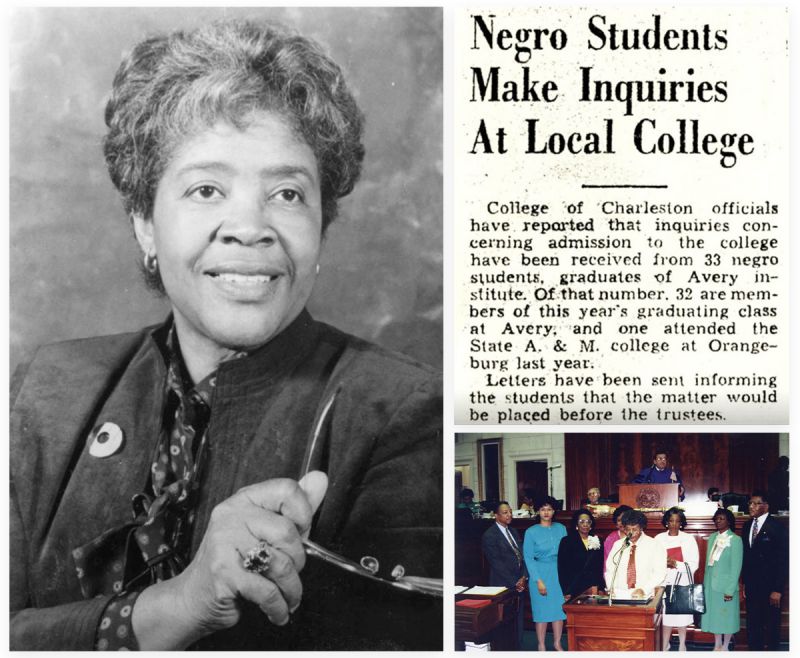She also made history as the first Black woman to serve in the South Carolina General Assembly

Lucille Simmons Whipper, a graduate of the Avery Institute, worked as the first African American human resources director at the College of Charleston after the school wouldn’t allow her to attend as a student in 1944. She went on to become the first Black woman to serve in the state legislature.
“In June, a change of tune,” so goes one variation on a traditional English folk song. It’s also an adage proven true in the Lowcountry with the birth of Lucille Simmons Whipper on June 6, 1928. Raised in a segregated city, she’d help change it dramatically.
When Whipper graduated from the all-Black Avery Institute, she and her classmates tried to enter the all-white College of Charleston but were turned away. After earning degrees from Talladega College and the University of Chicago, being widowed, and returning to Charleston, she served as a guidance counselor at the segregated Burke and Bonds-Wilson high schools and married the Reverend Benjamin Whipper in 1957.
In 1972, she became the first African American human resources director at the College of Charleston, also serving as an adviser to President Theodore Stern. Always loyal to Avery, Whipper was among those who prevented the private development of the Bull Street building that once housed the school, instead helping to secure federal and state funding to create what it is today: The Avery Research Center for African American History and Culture, now, ironically, part of the College of Charleston.
Knowing that education is key, Whipper served on the local school board, managed a federal project to set up model schools across the county, and took political stands that led her to the state house, where she again made history as the first Black woman to serve in the South Carolina General Assembly. She represented District 109—which includes parts of the peninsula, East Cooper, and North Charleston—in the House of Representatives for 10 years.
In retirement, Whipper founded the Low Country Aid to Africa project and continued to inspire many—including her son, Seth Whipper, who followed her into service in the House of Representatives. Whipper died on August 27, 2021. The changed city we live in is one of her legacies.